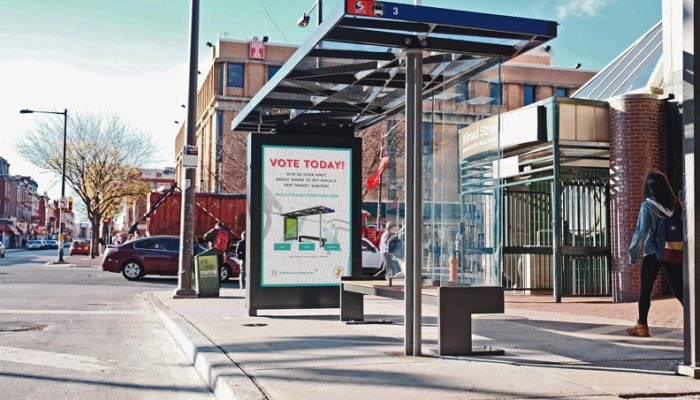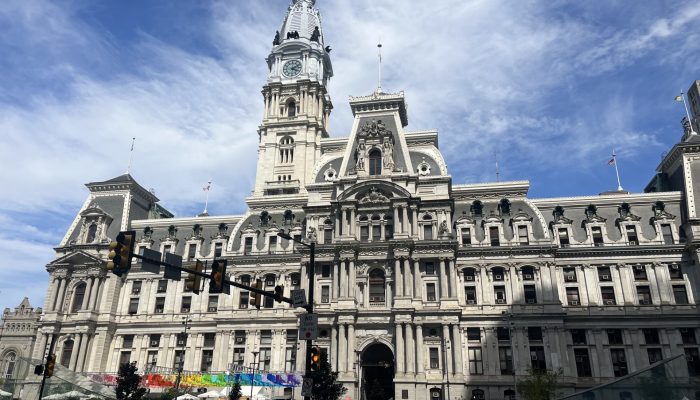The City announced that bus shelters citywide are now smoke and vape-free. Bus shelters join parks, rec centers, and other public spaces to be covered by smoke-free laws, designed to decrease secondhand smoke in public spaces.
How did this change happen?
Philadelphia student Anna Nguyen, who had a lung condition, was concerned about smoking at city bus shelters. When Councilman Al Taubenberger spoke to her class, Miss Nguyen asked about laws to protect Philadelphians from second hand smoke exposure at bus shelters. At the time, no such law existed.
In bad weather, City residents waiting at bus shelters were often faced with hard choices: protect their health or stand in the rain or snow until their bus arrives. As a result, many city bus shelters had become de facto smoking shelters.
Inspired by Miss Nguyen’s concern, Councilman Taubenberger passed a law in 2018 prohibiting smoking and vaping in bus shelters. New signage is being installed across the city to raise awareness about this new law.
What does the research say?
Research shows strong links between breathing secondhand smoke and serious health issues like cancer, heart attacks, stroke, and breathing problems.
Even a few minutes of breathing secondhand smoke is enough to cause airway constriction and changes in blood flow to the heart. And standing outside within a few feet of a person who is smoking is similar to being near a smoker indoors.
People with heart disease and children, particularly children with asthma, are at high risk from breathing secondhand smoke. They should avoid even the briefest exposures.
Other cities with smoke-free bus shelter laws on the books include San Antonio, Texas, Albany, New York, and Gainesville, Florida.



